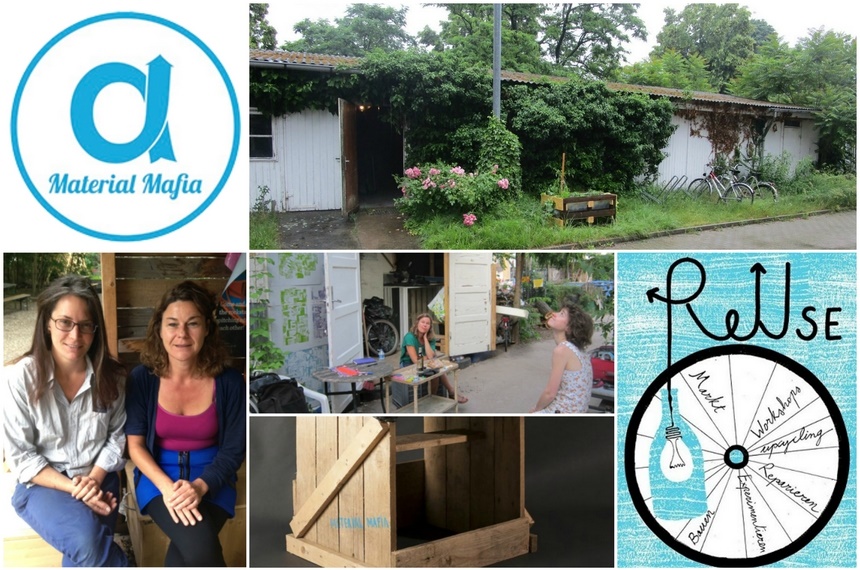
Redefining waste: the case of Material Mafia
The ever-growing problem of waste in the EU is covered by the Waste Framework Directive, which obliges every member state to implement a waste management plan that also includes a waste prevention programme. One of the measures of waste prevention strongly emphasizes the increasing importance of promoting the reuse and repair of discarded products or their components, specifically through the use of educational, economic or other measures such as support to (or establishment of) accredited repair and reuse centres and networks, especially in densely populated regions.
During the second learning activity in Berlin, Hi4CSR consortium paid a visit to one such centre called Material Mafia. It is a grassroots social enterprise based in the district of Berlin-Kreuzberg that explores questions around waste management and waste prevention. Material Mafia’s Simone Kellerhoff showed the consortium innovative and creative ways of upcycling and reuse of used materials, as well as the importance of waste reduction through redistribution, education and networking. Their motto can be summed up in one sentence: “Waste is a matter of definition.” Or as the English proverb goes, one man's trash is another man's treasure, or in this case - the raw material for new projects.
Material Mafia collects leftover materials and by-products such as wood, plastic, foam, textile, and plexiglass from different sources: theatre productions, film sets, museums, galleries, exhibitions and trade fair installations. Some of the waste is transformed by Simone herself and made into various everyday objects or small pieces of furniture such as stools made out of wood and old bicycle tubes, bags made out of plastic packaging or fabric residues, mats, planters, dishes, artwork and various other things.
The majority of the material is distributed or sold at a reduced price to artists, designers, schools, community projects and different initiatives for their arts and crafts, social projects or school lessons. In 2014 Material Mafia collected and redistributed over 200m3 of wood, fibreboard, plastic and paper along with other materials. Supposing that around half of the production of new materials is avoided through this redistribution, at least 345t of CO2 emissions were saved, according to a 2016 study by TESS (Towards European Societal Sustainability).
Along with the reuse and redistribution of waste, Material Mafia also organizes educational workshops for children and adults, which combine practice with theory on the origin of raw materials, production chains, recycling and sustainability in order to teach the participants how to redefine waste.
The transition to circular economy will need to simultaneously take place at multiple and complementary levels, from the top-down policies to bottom-up approaches such as innovative community-based initiatives like Material Mafia, with the common goal of raising awareness and promoting responsible consumption and sustainable lifestyles.
Sources:
http://www.material-mafia.net/
http://www.sustainable-communities.eu/material-mafia-redefining-waste/#_ftn3
http://prinzessinnengarten.net/projekte/kooperationsprojekte-vor-ort/material-mafia/
http://www.tess-transition.eu/wp-content/uploads/2016/06/2016_06_20_Deliverable_2.4_FINAL.pdf
http://www.tess-transition.eu/wp-content/uploads/2016/06/2016_06_20_Deliverable_2.4_FINAL.pdf
http://eur-lex.europa.eu/legal-content/EN/TXT/?uri=OJ:L:2008:312:0003:0030:en:PDF
Author: Ivan Petarčić (RRiF-plus d.o.o.)

Follow us on